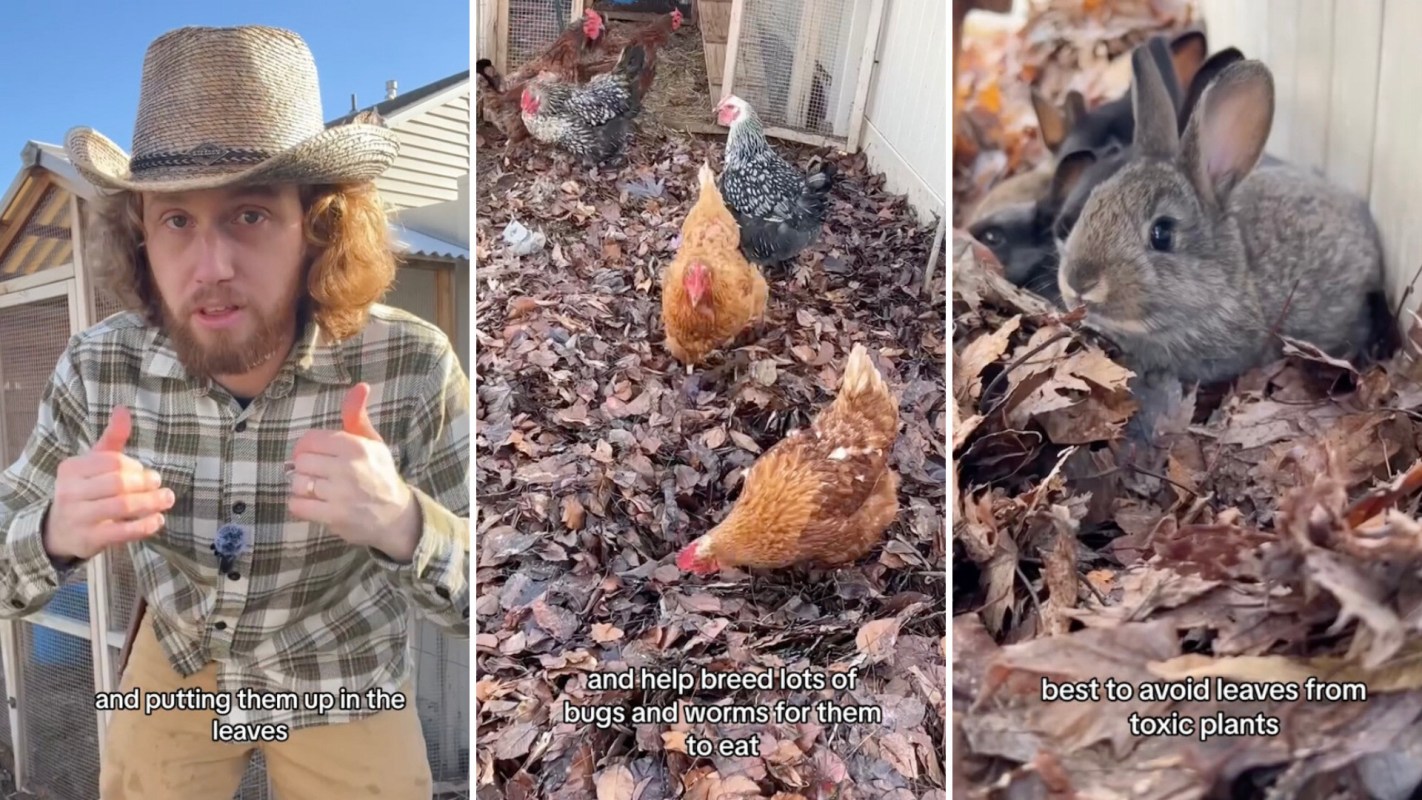Every year, fall comes around, and the streets are lined with bags upon bags of raked leaves headed for the landfill. If only people knew the value of what they were throwing away.
The scoop
Don't worry if you've already raked them away. Leaves will fall again, and this time, you'll be prepared. Wilderness survival pro, homesteader, and TikToker Sage Smoke Survival (@sagesmokesurvival) posted a video in early January to share what to do with fall leaves.
@sagesmokesurvival Save fall leaves for your garden and animals. Cycle nutrients the way nature does for free healthy soil and animals! #fyp #homesteading #offgrid #garden #chickens #meatrabbits #fallleaves #permaculture ♬ original sound - SageSmokeSurvival
The video tells you not to throw away your leaves and instead suggests spreading them over your garden or using them as animal bedding.
He goes on to explain how trees cycle nutrients by bringing minerals from deep within the earth with their roots and filling leaves with nutrients. When the leaves fall on the ground, the minerals are deposited back into the soil.
Using leaves as mulch throughout the winter will leave you with much richer soil in the spring — breeding lots of earthworms and bugs.
The same goes for animal bedding. Particularly on a chicken run, it will keep the mud down while giving the animals lots to eat and peck at while providing a natural compost full of fiber and nutrients.
"Makes better soil, happy animals, and leads to a healthier you," Sage Smoke Survival says with the wisdom of a tree.
How it's helping
Saving fall leaves gives you free animal bedding, compost, fertilizer, and microbes for your garden. In a world where not much is free, it seems absurd not to take advantage of this cost-free resource, or to at least mow right over the leaves for general yard fertilizer.
Lawn Love reported the national average spent on mulching is $200. So you're saving time and energy by using what's already in your lawn at a 100% discount. Less trips to the store means less time in the car, which equals less air pollution.
It's truly a domino effect of love for yourself and the planet. Even if you aren't raising chickens like Sage Smoke Survival, the gardening and personal benefits are clear.
The Lancet Planetary Health reported that those who garden are healthier than those who don't due to increased physical exercise and overall fiber intake.
Growing your own food also saves money on produce. According to the U.S. Bureau of Labor Statistics, grocery prices have risen 2.7% in the last year, and that's on top of already increased prices from previous years.
Gardening reduces environmental impact by decreasing the demand for mass-produced, store-bought, and globally shipped produce.
Whether you have a big yard, a teeny tiny apartment, or access to a community garden, there are gardening solutions for every living situation.
What everyone's saying
The video was much appreciated by commenters, generating lots of discussion.
"Everyone needs to do this," one follower strongly urged.
Another commented, "Let it all go back to the Earth!"
"Amen," said a third.
Join our free newsletter for easy tips to save more, waste less, and help yourself while helping the planet.









